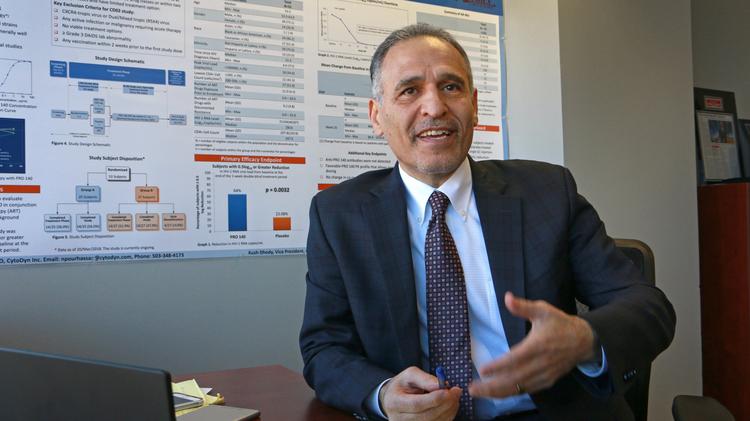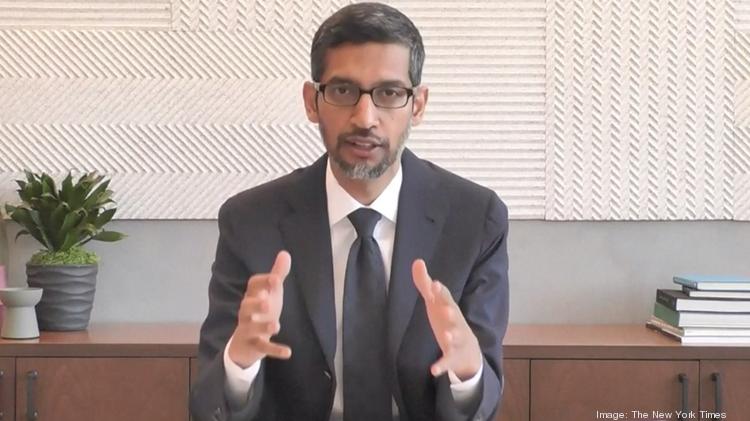Ousted CEO Pourhassan sues CytoDyn to cover his attorney's fees

Nader Pourhassan, the former CEO of CytoDyn, is suing the company to compel it to pay the expenses he's incurred in defending himself in government investigations.
By Elizabeth Hayes – Staff Reporter, Portland Business Journal
Jan 24, 2023
Nader Pourhassan, who was fired as CEO of CytoDyn a year ago, wants his former employer to cover attorney’s fees and other expenses he’s incurred in defending himself against fraud and insider trading charges.
In a lawsuit he filed earlier this month in Delaware Chancery Court, Pourhassan argues CytoDyn’s bylaws and a 2015 Indemnification Agreement “both provide for broad, mandatory advancement rights for investigations and other forms of proceedings connected with Dr. Pourhassan’s status as the company director and officer.”
CytoDyn initially covered Pourhassan’s expenses but then “defaulted on the payments,” according to the lawsuit, which redacts the exact amounts.
A federal grand jury in December indicted Pourhassan and a former business associate for their roles in “schemes to defraud investors” of the Vancouver-based company. Shares of CytoDyn, which trades on the over-the-counter market (OTC: CYDY), rose to 30 cents on Tuesday.
Pourhassan, who lives in Lake Oswego, and Kazem Kazempour, of Potomac, Maryland, allegedly defrauded investors through false and misleading representations and omissions related to CytoDyn’s development of a drug candidate to treat HIV and, later, Covid-19.
The board ousted Pourhassan in January 2022, after two years of turmoil that included a dissident shareholder takeover attempt and lawsuits related to Pourhassan’s management.
Pourhassan faces a maximum penalty of 20 years in prison on each count of securities fraud and wire fraud and five years on a conspiracy count, if convicted. The Securities and Exchange Commission also charged Pourhassan with fraud and insider trading for allegedly providing misleading information to shareholders about the progress of the drug candidate, leronlimab.
The SEC further alleges Pourhassan netted $4.7 million in stock sales after he failed to notify shareholders that the Food and Drug Administration informed him that CytoDyn's application was inadequate.
Pourhassan says in his lawsuit that CytoDyn has “refused to reimburse fees and expenses” in 2022 for the investigations. He is asking a judge to order CytoDyn to pay “this full amount of all expenses (including attorneys’ fees) reasonably incurred” by him in connection with the investigations and proceedings.
CytoDyn did not respond to a request for comment.

Nader Pourhassan, the former CEO of CytoDyn, is suing the company to compel it to pay the expenses he's incurred in defending himself in government investigations.
By Elizabeth Hayes – Staff Reporter, Portland Business Journal
Jan 24, 2023
Nader Pourhassan, who was fired as CEO of CytoDyn a year ago, wants his former employer to cover attorney’s fees and other expenses he’s incurred in defending himself against fraud and insider trading charges.
In a lawsuit he filed earlier this month in Delaware Chancery Court, Pourhassan argues CytoDyn’s bylaws and a 2015 Indemnification Agreement “both provide for broad, mandatory advancement rights for investigations and other forms of proceedings connected with Dr. Pourhassan’s status as the company director and officer.”
CytoDyn initially covered Pourhassan’s expenses but then “defaulted on the payments,” according to the lawsuit, which redacts the exact amounts.
A federal grand jury in December indicted Pourhassan and a former business associate for their roles in “schemes to defraud investors” of the Vancouver-based company. Shares of CytoDyn, which trades on the over-the-counter market (OTC: CYDY), rose to 30 cents on Tuesday.
Pourhassan, who lives in Lake Oswego, and Kazem Kazempour, of Potomac, Maryland, allegedly defrauded investors through false and misleading representations and omissions related to CytoDyn’s development of a drug candidate to treat HIV and, later, Covid-19.
The board ousted Pourhassan in January 2022, after two years of turmoil that included a dissident shareholder takeover attempt and lawsuits related to Pourhassan’s management.
Pourhassan faces a maximum penalty of 20 years in prison on each count of securities fraud and wire fraud and five years on a conspiracy count, if convicted. The Securities and Exchange Commission also charged Pourhassan with fraud and insider trading for allegedly providing misleading information to shareholders about the progress of the drug candidate, leronlimab.
The SEC further alleges Pourhassan netted $4.7 million in stock sales after he failed to notify shareholders that the Food and Drug Administration informed him that CytoDyn's application was inadequate.
Pourhassan says in his lawsuit that CytoDyn has “refused to reimburse fees and expenses” in 2022 for the investigations. He is asking a judge to order CytoDyn to pay “this full amount of all expenses (including attorneys’ fees) reasonably incurred” by him in connection with the investigations and proceedings.
CytoDyn did not respond to a request for comment.


















